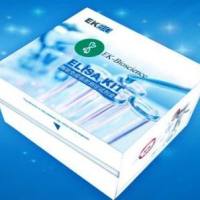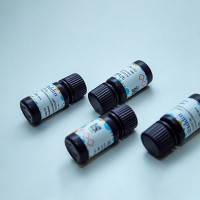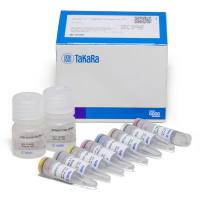Molecular Cloning of Opioid Receptors by cDNA Library Screening
互联网
482
In order to obtain cDNA clones encoding opioid receptors, one conventional strategy is to screen a cDNA library by using either a nucleic acid probe or an antibody probe. Many opioid receptor cDNA clones have been identified by the cDNA library screening (1 –16 ). Different types of cDNA libraries made from a variety of tissues or cells are available from various companies such as Strategene, ClonTech, and Invitrogen. cDNA libraries are commonly constructed in bacteriophage λ vectors, which are advantageous in their highly efficient and reproducible packaging systems in vitro. However, cDNA expression libraries are usually made in mammalian expression plasmid vectors, which can be screened by expression cloning with a specific radiolabeled ligand or an antibody probe in a mammalian cell line. Choice of the screening procedures depends upon the available probe and cDNA library. A nucleic acid probe is ideal for screening its homologs, or associated splicing variants or full-length cDNAs. If only a partial protein sequence is on hand, degenerate primers can be designed to screen cDNA libraries with a direct polymerase chain reaction (PCR) or with a hybridization procedure. Alternatively, a specific antibody could be generated against the protein sequence and used in the cDNA library screening. A successful cDNA library screening relies on several factors: a high-quality cDNA library, a well-made probe, and the performer’s experience. This chapter mainly focuses on the procedures used for screening λZAPII bacteriophage libraries. It describes the screening procedures of using nucleic acid probes and antibody probes. Also discussed is a PCR screening procedure, which provides an efficient assay for identifying a cDNA clone and serves as an initial screening for the hybridization screening to determine whether the cDNA library contains the gene interested.









